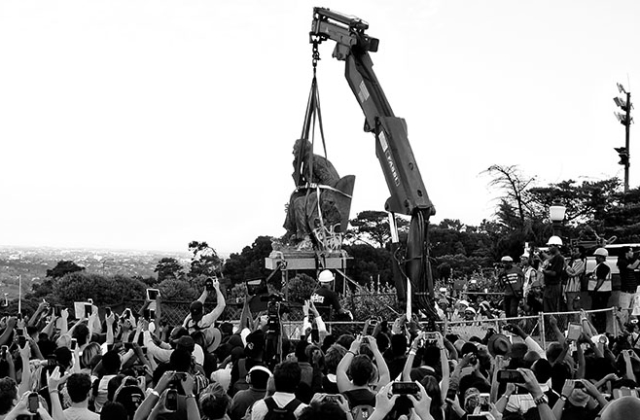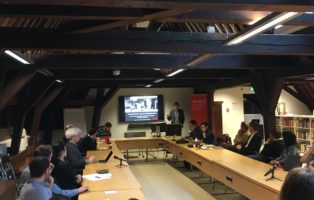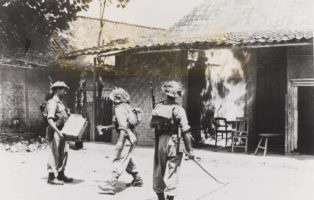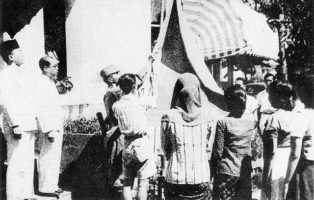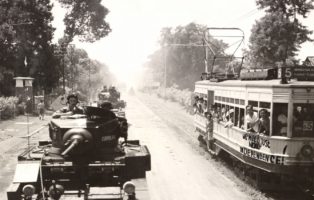By Natalya Vince (co-organiser with Bart Luttikhuis)
The majority of speakers were scholars working at universities located in former colonial powers (the Netherlands, the UK, France, Belgium…) who were born in former colonies or part of their postcolonial diasporas (Indonesia, Algeria, Senegal…). However, this was no self-satisfied display of “diversity”. “Diversity” is, as Nedjib Sidi Moussa underlined, the buzzword in many European and American universities which foreground black students as part of their marketing strategies. In doing so, as speaker Sophie Withaeckx has powerfully argued, they “render[…] invisible the institutional sexism and racism fundamentally structuring the university”.
Workshop participants demonstrated how colonialism and its legacies shape and continue to shape what we know, who knows it, what we will research in the future, who will have the opportunity do that research, and where they will do it. Not only does this create huge inequalities, it also creates massive blind spots in our knowledge. In exploring who gets to speak and who is silenced, the intersections of race, class and gender were repeatedly underlined. Participants also point out that the decolonisation of knowledge was not just something which needed to take place in the Global North – as both Hadi Purnama and Grace Lesksana argued in relation to Indonesia, post-colonial educational systems in former colonies are still very much in the mould of those of the former colonial power.
In the face of huge structural obstacles – money and power – speakers gave practical examples of what could be done, now. Meera Sabaratnam talked about the Learning and Teaching Toolkit (available for free and online) which she had worked on with colleagues at the School of Oriental and African Studies (SOAS) in London. Student Lilah Butler gave an example of an assessment which she did as part of her undergraduate studies, in which she “decolonised” the Wikipedia pages of two Algerian female nationalists. That is to say, she critically examined the kinds of sources which had been used to compose the biographical entries, changing some of them, and she sought to give more voice to the women themselves (and proportionally less space to the white Frenchmen they encountered). Speaking from her personal experiences, as a feminist of colour working in Belgian higher education, Sophie Withaeckx shared some tactics. These include getting in and staying in university posts, adopting strategic silence when necessary, trusting your emotions when things which are completely normalised seem wrong to you, refusing to participate in actions which reproduce exclusion and being encouraging to younger colleagues. For white academics, a basic starting point is to be honest about what they are seeking to achieve when they state that they are “decolonising the curriculum” or “decolonising the academy”. As Grace Lesksana underlined, are claims of “decolonising” colonial history (just) a tool to make the European liberal democracies feel good about themselves in the present? What consideration is given to the fact that the questions important to Dutch audiences are not the same questions which interest Indonesian audiences, for example? How can academics from former colonies participate in these discussions – are they there as victims, or as equal research partners?
The workshop took place at the end of an intellectually stimulating three months at NIAS, during which time I discovered a research institute which was in some ways very different from my home institution, the University of Portsmouth, and in other ways similar. For me, these are the “take away” reflections of relevance to both:
1. Universities and research institutions pride themselves being elite institutions, which recruit the best and the brightest staff based on their publications, research grants, international collaborations, etc… Yet everyone knows that the reason why these institutions continue to be dominated by white, middle- and upper-class men is not because this is a category of the population which is cleverer or more productive than the rest, but rather because they have huge structural advantages. At the same time, there remains the tendency when institutions keep recruiting cultural clones for them to shrug their shoulders and say “we have to recruit the best”. How can we begin to break this cycle?
2. The image of the academic in the ivory tower researching something obscure endures, but the reality is long dead. Academics in the neoliberal university are expected to be not just researchers and educators, but bid writers, financial managers, marketing experts, entertainers – as well as demonstrate the positive economic and societal impact of their work. And all of this is, of course, has to be measurable. The entirely understandable desire to be left alone to do our research should not obscure the fact that universities have a fundamental role to play in transforming societies – and indeed this can be a means to resist metrics and marketisation. As Professor André Mandouze, an expert on antiquity, Second World War resister and opponent of French colonialism put it in 1963, giving a speech as independent Algeria’s first director of Higher Education: “The academic does not know to be anything other than awkward. And I don’t hesitate to say that it is an excellent thing for society if the academic is awkward.” But at the same time, he argued, academics have to engage in the world around them, otherwise the university will become “a prison because it only admires itself”.
3. The structural issues involved in decolonising the curriculum and the academy are huge but this is not an excuse, nor is it an impediment, for getting started. As Meera Sabaratnam put, we can do things differently and it’s not that complicated.
Final Workshop Programme
Roundtable 1: 13.30-14.30: Decolonising the curriculum
Chair: Fenneke Wekker, Head of Academic Affairs, NIAS
• Dr Meera Sabaratnam, School of Oriental and African Studies (SOAS), University of London. Author of Decolonising Intervention: International State-Building in Mozambique (2017) and Chair of the Decolonising SOAS Working Group
• Lilah Butler, student at Sciences Po, Paris, decolonising Wikipedia through an assessed assignment.
Roundtable 2: 14.45-15.45: Decolonising the history of decolonisation
Chair: Dr Esther Captain, Royal Netherlands Institute of Southeast Asian and Caribbean Studies, member of the “Comparing Wars of Decolonisation” project
• Grace Leksana, Leiden University, PhD candidate, working on a PhD on the memory of violence in post-new order Indonesia.
• Hadi Purnama, VU University, PhD candidate, specialist in public international law.
• Dr Bart Luttikhuis, Leiden University / Dr Natalya Vince, University of Portsmouth (“Comparing Wars of Decolonisation Project”)
Roundtable 3: 16.00-17.00: “Diversity” and structural inequalities
Chair: Dr Ratna Saptari, Leiden University
• Dr Sophie Withaeckx, Vrije Universiteit Brussel, author of “Weakening the Institutional Wall, Reflections on Race, Gender and Decolonisation in the Belgian Academy”, Digest, 6:1 (2019), pp. 25-44.
• Dr Nedjib Sidi Moussa, author of La Fabrique du musulman [The creation of the Muslim] (2017) and Algérie: une autre histoire de l’indépendance [Algeria: another history of independence] (2019)
